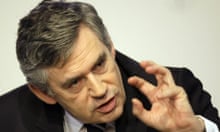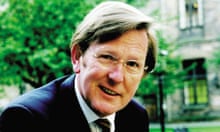Attempts have been made to break into the offices of one of Canada's leading climate scientists, it was revealed yesterday. The victim was Andrew Weaver, a University of Victoria scientist and a key contributor to the work of the Inter-governmental Panel on Climate Change (IPCC). In one incident, an old computer was stolen and papers were disturbed.
In addition, individuals have attempted to impersonate technicians in a bid to access data from his office, said Weaver. The attempted breaches, on top of the hacking of files from British climate researcher Phil Jones, have heightened fears that climate-change deniers are mounting a campaign to discredit the work of leading meteorologists before the start of the Copenhagen climate summit tomorrow.
"The key thing is to try to find anybody who's involved in any aspect of the IPCC and find something that you can … take out of context," said Weaver. The prospect of more break-ins and hacking has forced researchers to step up computer security.
Fears of further attacks by climate-change deniers have also put Copenhagen delegates under increased pressure to reach a comprehensive deal to limit carbon emissions, with Britain's chief negotiator, energy and climate change secretary Ed Miliband, warning last week that there was no certainty that a deal would be reached. "We need to have our foot on the gas all the time," he said on Thursday. "We should not be complacent about getting a deal." It was crucial that Britain, and Europe, showed ambition in setting an agenda for a tough, binding agreement and not let the efforts of climate sceptics derail negotiations, he added. "Our children will hold us in contempt if we fail now."
Analysts say the key to success at Copenhagen would be the establishment of a treaty in which developed countries agree to make major carbon emission cuts while developing nations make lesser, but nevertheless significant reductions of their own. Ultimately, the aim is to ensure that the world's output of CO2 begins to decline by 2020. If this is not achieved, temperatures will rise by more than 2C and take the world into uncontrollable global warming.
In addition, the Copenhagen summit will also have to establish a mechanism by which the west will pledge to pay billions of pounds in aid to the developing world to introduce renewable technologies and other climate-control measures. So far, there is little sign of rapprochement, particularly over the issue of cash aid from developed countries.
"Rich nations tell us they are going to Copenhagen to seal a deal, but we say not an unfair deal. We will never give way," said Abdalmahmood Abdalhaleem Mohamed, Sudan's ambassador to the UN. Bangladesh's senior delegate was equally robust, describing the $10bn so far offered by the west as "peanuts".
However, there was more encouraging news last week when India's prime minister, Manmohan Singh, announced he would attend the summit, joining Gordon Brown and President Barack Obama on the final day of the meeting. India is the world's fourth biggest emitter of greenhouse gases and has just pledged to cut its carbon emissions by 20-25% by 2020. India had previously been reluctant to commit itself to carbon cuts. Singh's new stance suggests his country is now prepared to be more co-operative.




